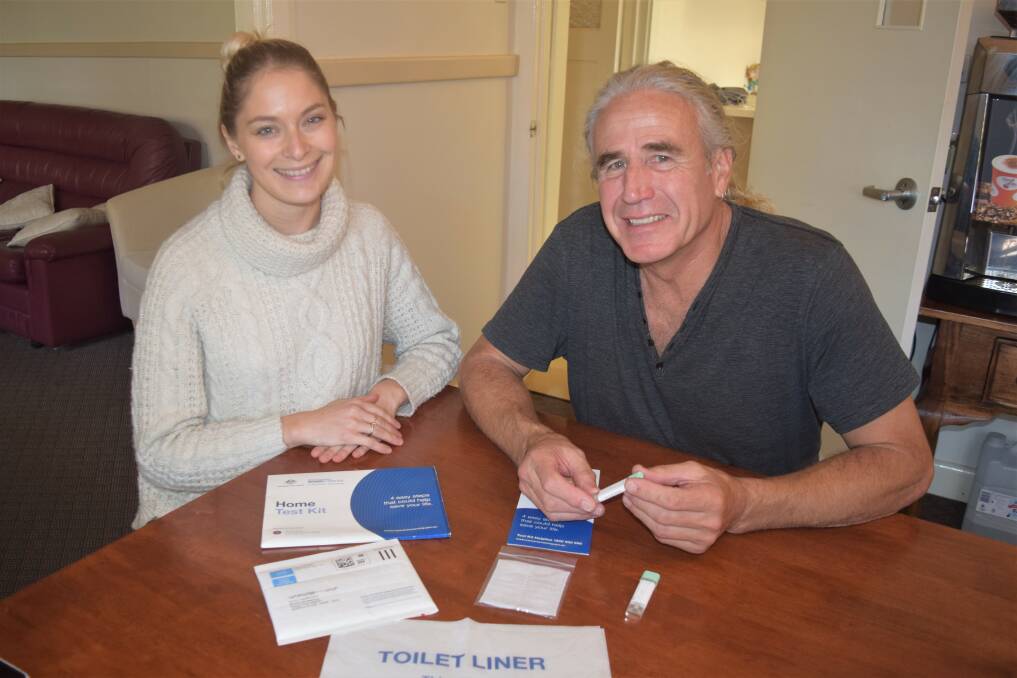
It’s a topic no one likes to talk about but a Busselton man is urging others to participate in the National Bowel Cancer Screening Program.
Currently, only 45 per cent of the South West community are returning the free tests, which are sent to 50 to 74- year-old residents every two years.
Mike Jones never presented with bowel cancer symptoms.
In late 2017, he received an irregular result, which led to the discovery of a four centimetre tumour.
Thankfully, the tumour was benign, however, the 58-year-old wants to use his experience to promote the testing program.
“It could have just as easily been cancer, so this is a really good story,” he said.
“I don’t mind doing the test and I tell everyone now.
“If it was cancerous, at least it would have been removed earlier, before it moved to bowel wall or through the bowel wall.”
Cancer Council WA South West regional education officer Shenae Norris said studies showed the test saved lives.
“We know up to 90 per cent of bowel cancers can be detected and treated successfully if found early, if it is not found and progresses to a later stage of cancer, your survival rate drops to around 8 per cent – now that’s a huge comparison.
“Seeing as a lot of people don’t experience symptoms until it progresses to that late stage, this is going to save your life.
“You think about the national breast screening program, and how many women actively go make an appointment for that, this is the same thing but people aren’t doing it.”
She believed the lack of participation in the program was down to people being afraid of what could be found and people being uncomfortable discussing their bowel movements.
Mr Jones, who has been participating in the program since he was 50, said the test was simple and straightforward.
He said the statistics for the South West had to change and people needed to use the resources available.
“It’s all about finding illness or an issue earlier so you don’t have the major problems when you are 60 or 70 , or when it may be too late,” he said.
“Early treatment is the key.”
For more information on the screening program, visit cancerscreening.gov.au/bowel.

